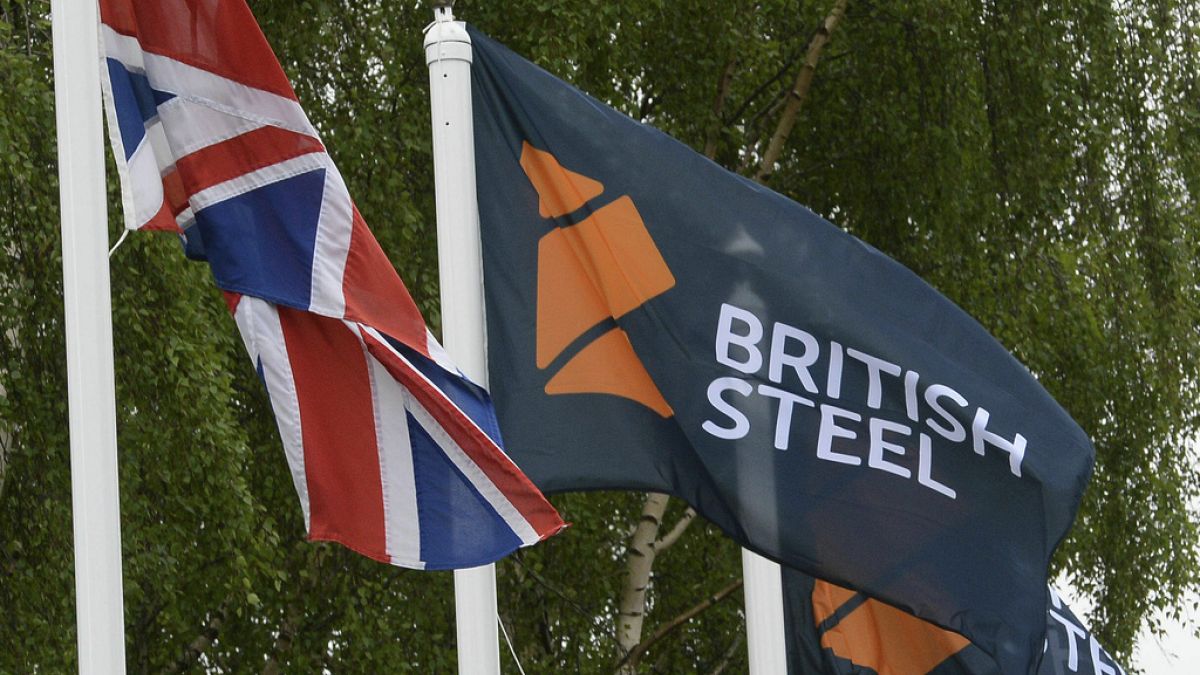More than 2,000 jobs are at risk as Britain’s second-biggest steelmaker failed to get an agreement with the UK government to support further operations.
British Steel said Thursday that it is planning to close its two blast furnaces and steelmaking operations in the northern England town of Scunthorpe, after its Chinese owner Jingye failed to agree a rescue package with the UK government.
Unions called on the government to help secure the future of the company, which Jingye said is suffering daily losses of around £700,000 (€840,000) despite the Chinese firm investing more than £1.2 billion to maintain operations since its takeover of British Steel in 2020.
The company, Britain’s second-biggest steelmaker, blamed “highly challenging market conditions, the imposition of tariffs, and higher environmental costs relating to the production of high-carbon steel.”
British Steel said it is consulting with unions over the decision to close the blast furnaces and steelmaking operations and reduce rolling mill capacity, potentially as early as June. Between 2,000 to 2,700 jobs are potentially at risk.
The company had sought support from the government for a major capital investment in two new electric arc furnaces, which would emit far less carbon into the atmosphere. However, after months of negotiations, no agreement was reached.
Unions published a report last month outlining how to decarbonize steelmaking at British Steel. The plan would involve continuing to operate Scunthorpe’s two existing blast furnaces while two new electric ones are constructed on site. The plan would require an additional 200 million pounds of government support to mitigate carbon costs in the interim period.
“This is a dark day for our steel industry and for our country,” said Roy Rickhuss, the general secretary of the Community union. “The closures at Scunthorpe would represent a hammer blow to communities which were built on steel, and where the industry still supports thousands of jobs directly and thousands more through extensive supply chains.”
Rickhuss urged Jingye and the government to return to the negotiating table and said the Chinese company “has not ruled out” retaining the blast furnaces during a transition if they can win government backing.
Business and Trade Secretary Jonathan Reynolds said the government will “continue working tirelessly” to reach an agreement with Jingye.
“We’ve been clear there’s a bright future for steelmaking in the UK,” he said.
At its height in the postwar period, British steelmaking was a global leader, employing more than 300,000 people before cheaper offerings from China and other countries hit production. The industry now employs about 40,000 people directly, accounting for just 0.1% of the British economy.

